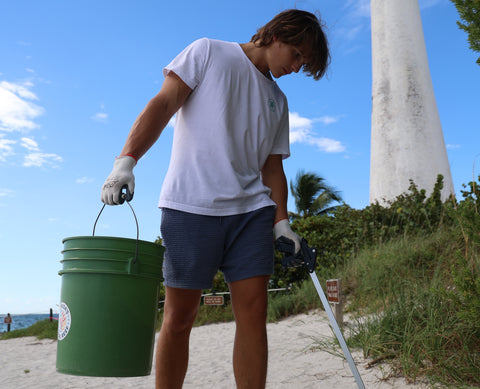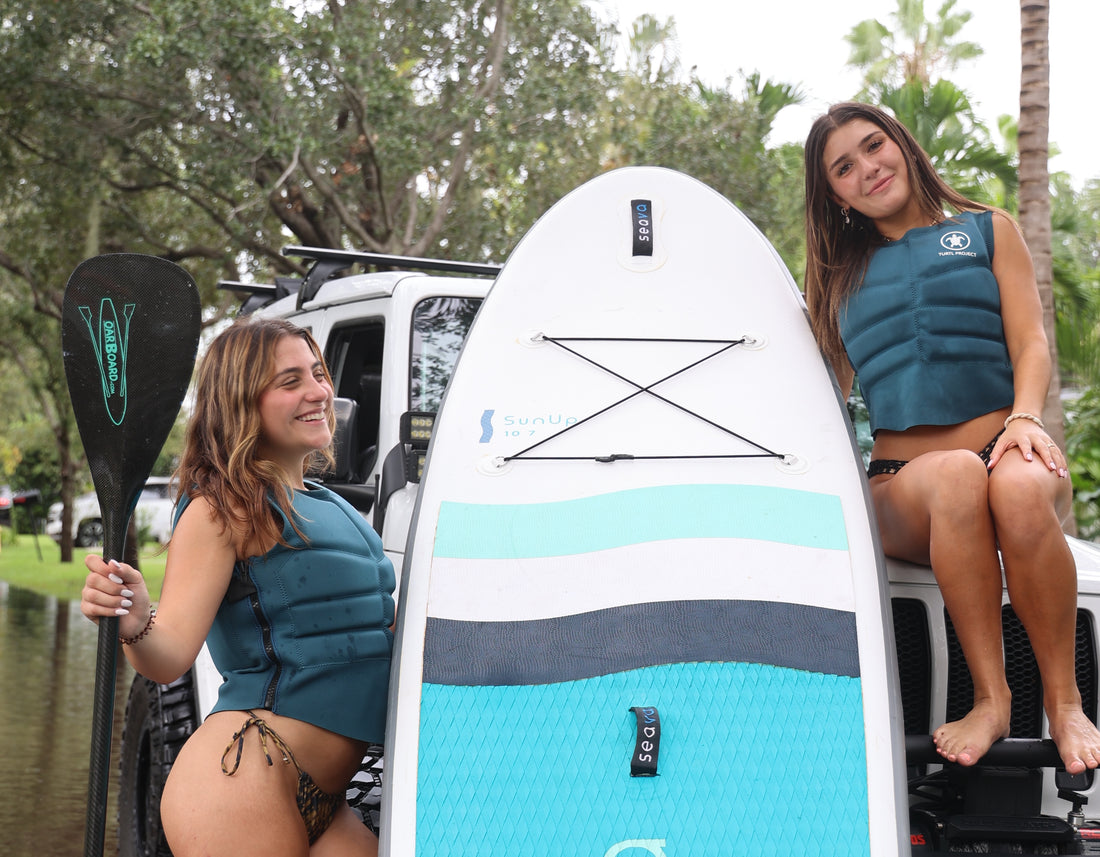Wondering how to make your watersports school more sustainable? With a growing demand for eco-friendly options, you're not the only one.
Over 70% of European customers want to buy sustainable products, and it's not just consumer goods where we are seeing these trends.
In leisure and tourism activities most travelers are looking for greener ways to enjoy their holidays. In fact, 75% of people want to make their holiday travel sustainable, according to Booking.com's 2023 Sustainable Travel Report.
However, while consumers want more sustainability, the same report shows that almost half worry about the cost.
This is your chance to make a difference and attract new customers by offering affordable, sustainable watersports experiences. In this blog, we will explore some options for how you can do just that.
Sustainable Wetsuits for Watersports Schools
Running a watersports school means the ocean is your office. You see firsthand the beauty it holds and, unfortunately, the threats it faces. It's natural to want to do your part in protecting it. So, how can you do that without impacting your business's bottom line?
Swap Out the Neoprene
Neoprene wetsuits have been the standard for years, but they come with a hefty environmental cost. From significant CO2 emissions during production (about 28.61 lbs of CO2 per wetsuit) to shedding microplastics in the ocean, the impact is undeniable.
Enter the Galapagos wetsuit: a game-changer made from limestone-based neoprene. This innovative alternative slashes CO2 emissions by nearly 80% per wetsuit and doesn't shed microplastics, protecting the ocean from further pollution.
Cost Matters
We get it. Sustainability sounds great until you see the price tag. Traditional sustainable options can be pricey, making it tough for you and your customers.
The Galapagos wetsuit, however, balances quality with affordability. We developed out of necessity a limestone wetsuit tailored to the needs of water-sport schools at the best market prices. Visit Turtl for Business to learn more.

Make Old New Again
Wetsuit disposal poses another environmental challenge, with neoprene being difficult to recycle and often ending up in landfills. The Turtl Project addresses this by repurposing old wetsuits into new products, like the Re-Wallet, and diverting waste from landfills.
For every Galapagos wetsuit purchased, 2 lbs of marine plastic are also removed from the ocean, turning potential waste into a force for positive change.
Beyond Wetsuits - Sustainable Choices for Watersports
Transitioning to eco-friendly gear is just the start. Here are other smart swaps to reduce your school's environmental footprint.
-
Eco-Friendly Surf Wax
Ditch the petrochemicals. Be a sustainable surfer and choose surf wax made from natural, biodegradable ingredients. It's better for the ocean and your health.
-
Reef-Safe Sunscreen
Protect your skin without harming marine life. Use sunscreens free from oxybenzone and octinoxate, known to damage coral reefs.
-
Reduce Plastic Use
Say no to single-use plastics. Offer reusable water bottles and eco-friendly packaging. Every bit helps in reducing ocean pollution.
-
Encourage Clean Beaches
Organize beach cleanups. It’s a great way for your school to give back to the community and keep your local beaches pristine.

-
Promote Respectful Surfing
Educate your students on how to enjoy the water responsibly. Avoid disturbing marine life and always leave no trace.
It's a Community Effort
Creating a sustainable watersports school isn't a solo mission. It requires collaboration—between staff, customers, and the broader community. Organize beach cleanups, engage in local conservation efforts, and partner with other eco-minded businesses to amplify your impact. Sharing your journey towards sustainability can inspire others to take action, creating a wave of change that extends far beyond your school.
Marketing Your Eco-Friendly Watersports School
In today's digital age, sharing your sustainability efforts can boost your visibility and attract like-minded customers. Here's how:
Be Loud and Proud Online
Use your website and social media platforms to talk about your eco-friendly practices. Post pictures of your team participating in beach cleanups, share testimonials from customers who appreciate your commitment to the environment, and highlight the sustainable gear you offer. This transparency not only builds trust but also aligns with the values of eco-conscious consumers.
You can also create a specific page on your website where you talk about your sustainability initiatives. An example of a watersports school that has done this really well is Algarve Watersports. It not only informs visitors about the eco-friendly measures they're taking but also demonstrates your commitment to environmental stewardship. A well-crafted sustainability page, helps to build trust and align your brand with the values of your customers who prioritize ecological responsibility.
Collaborate and Cross-Promote
Partner with local environmental organizations and other sustainable businesses. These partnerships can lead to joint marketing efforts, such as co-hosted events or shared social media campaigns, amplifying your reach to potential customers who care about the planet.
Leverage Customer Stories
Encourage your customers to share their experiences on their social media. User-generated content is authentic and relatable, making it a powerful tool for attracting new customers. Offer incentives like discounts on future rentals or classes for customers who tag your school in their posts.
Planning for a Cleaner Future
Sustainability is a journey, not a destination. Here’s how to keep moving forward:
Set Clear, Measurable Goals
Define what sustainability means for your school and set specific, achievable goals. Whether it's reducing carbon emissions, minimizing waste, or increasing the use of sustainable materials, having clear targets will help you track progress and stay motivated.
Stay Informed and Innovate
The world of sustainability is always evolving. Stay up-to-date with the latest eco-friendly practices and technologies that can be applied to your business. Attend workshops, participate in forums, and connect with sustainability experts to keep your practices cutting edge.
Build a Community of Eco-Warriors
Foster a culture of sustainability among your staff and customers. Organize educational workshops, create a sustainability charter for your school, and involve your community in decision-making processes. When everyone is invested in the mission, achieving your sustainability goals becomes a shared success.
Ready to make your watersports school eco friendly?
Get in touch with Turtle Project to learn how we partner with schools to provide sustainable wetsuits and recycle old suits. Let's work together for a cleaner ocean and a greener future. Contact us now and make a difference.

